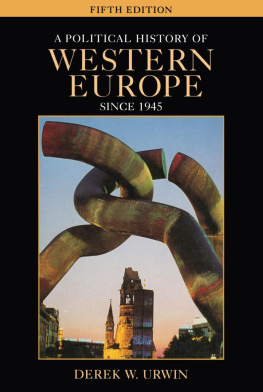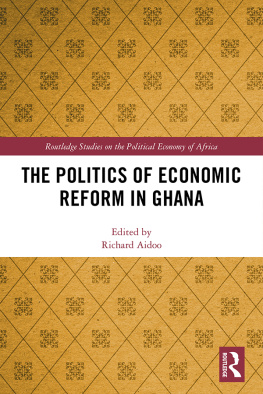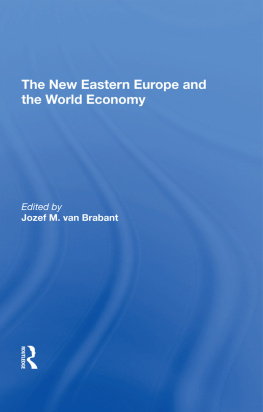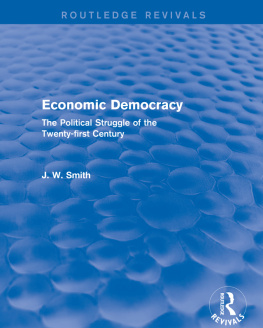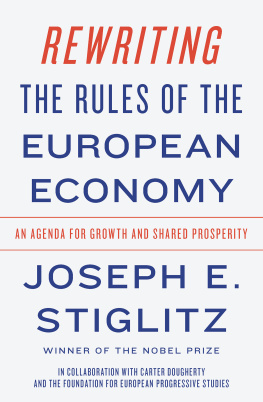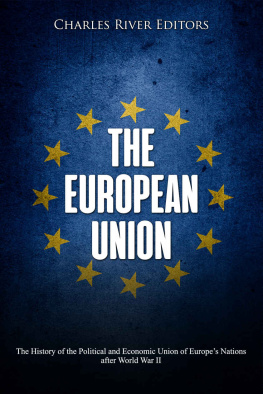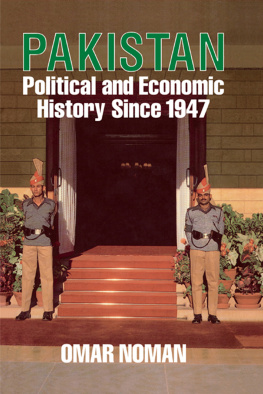Routledge Revivals
The Economic Problems of Europe
First Published in 1928 The Economic Problems of Europe presents a comprehensive overview of the economic and political transformation of Europe since the First World War. European and world problems often tend to be looked upon from the political, diplomatic, naval, or military aspect. Morgan Philips Price attempted to add the economic background and to show the connection between the political rearrangements since the First World War and the material needs of society, markets of the industrialist, the wages of the workman, and the loans of the bankers. He argued that with the growing internationalization of the world economy, the old map of the world is obsolete and the new one, if it is based on frontiers of finance and industry, will be something very different. This book is an essential read for scholars and researchers of economic history, war history, political economy, British economic history, and European history.
The Economic Problems of Europe
Pre-War and After
M. Philips Price
First published in 1928
by George Allen & Unwin Ltd
This edition first published in 2021 by Routledge
2 Park Square, Milton Park, Abingdon, Oxon, OX14 4RN
and by Routledge
605 Third Avenue, New York, NY 10017
Routledge is an imprint of the Taylor & Francis Group, an informa business
M. Philips Price 1928
All rights reserved. No part of this book may be reprinted or reproduced or utilised in any form or by any electronic, mechanical, or other means, now known or hereafter invented, including photocopying and recording, or in any information storage or retrieval system, without permission in writing from the publishers.
Publishers Note
The publisher has gone to great lengths to ensure the quality of this reprint but points out that some imperfections in the original copies may be apparent.
Disclaimer
The publisher has made every effort to trace copyright holders and welcomes correspondence from those they have been unable to contact.
A Library of Congress record exists under LCCN: 29001839
ISBN: 978-1-032-15174-8(hbk)
ISBN: 978-1-003-24285-7(ebk)
ISBN: 978-1-032-15175-5(pbk)
Book DOI 10.4324/9781003242857
THE ECONOMIC PROBLEMS OF EUROPE
PRE-WAR AND AFTER
By
M. PHILIPS PRICE
FOREWORD BY
THE RIGHT HON. SIDNEY WEBB, M.P.
First published in 1928
(All rights reserved)
Printed in Great Britain by
Unwin Brothers, Ltd., Woking
IN the following pages I have attempted to supply a gap in current literature. European and world problems tend to be looked upon from the political, diplomatic, naval, or military aspect. I have attempted to add the economic background and to show the connection between the political rearrangements since the war and the material needs of society, the markets of the industrialist, the wages of the workman, and the loans of the bankers. While collecting material for this book, I have been impressed by the increasing internationalization of world economy. The old map of the world is obsolete; the new one, if it is based on frontiers of finance and industry, will be something very different. In the light of this, how out of date do the speeches of European politicians of the old school seem to-day! Yet Europe is politically Balkanized, and the hunt for gold to found national currencies presents barriers to the new economic order, while the problem of armaments looms forbiddingly ahead. It is a race between the new in-rushing forces and the recuperative powers of the old.
I formed the conception of this book when preparing lectures for the National Labour Colleges, in 1925 and 1926, on the economic aspects of the Versailles Treaty and on the Dawes Plan. I soon saw, however, that I must extend the field of inquiry to include colonial problems and to the repercussions of Americas financial policy abroad. to this subject, based on what has been published in the past and now largely out of print, together with other material collected by myself during my residence abroad. In this connection I have found useful material in the British Museum and in the Prussian State Library in Berlin. The last three chapters have been based on a careful perusal of contemporary publications in this and in continental countries, including Soviet Russia.
M. PHILIPS PRICE.
TAYNTON, GLOUCESTER,
February 2, 1928.
THIS is a suggestive book, original in conception and novel in outlook, in which a series of problems of vital importance to Western Civilization are examined from an unfamiliar angle. As such, it deserves the unprejudiced consideration of economic and political students in Great Britain and the United States, and of statesmen everywhere. The almost unique experience of the author, during the past fifteen years, of the momentous changes still proceeding in the industrial and political organization of Central and Eastern Europe, lead him to inferences of importance as to some effects of the new Industrial Revolution which is taking place throughout the civilized world.
We stand to-day perplexed at the manifold problems which the Great War has revealed to the economist and the politician, apart from those which it has directly caused. Even to comprehend the nature of these problems demands an effort. We seem to be living in the midst of a rapidly developing transformation of industrial, financial, and social relations more far-reaching in its effects than the Industrial Revolution of the eighteenth century. A century ago the canal and the turnpike road, the steam-engine and the railway locomotive, the steamship and the cotton-gin, making available an enormous supply of a new raw material, changed, between 1750 and 1850, the whole face of Britain. This time the revolution is international and world-wide. Who can measure the combined effects on social life and economic organization, during the years in which we are living, of such subversive transformations as are indicated by the novel applications to industry of electricity and chemistry; the internal-combustion engine; the spreading use of various kinds of oil; the fixation of nitrogen from the atmosphere; the utilization of new plants, minerals and alloys; the substitution of silk made out of woodpulp for both cotton and wool; the increase in the magnitude of factories, of ships and of business enterprises, and of the general scale of production and of distributing agencies; the new capital required in order to bring up to date our iron and steel works, our engineering factories, our railways, and other industries which novel processes have left behind in the competitive market; the internationalization, not only of finance, but also of the direction of capital investments; the almost miraculous revolutions in communication and conveyance represented by the aeroplane, by broadcasting, and by wireless telegraphy; and the vastly heightened sensitiveness of the whole world caused by the virtual simultaneity of news, opinions, and impressions among the entire population? The social historian of a hundred years hence will be better able to gauge this twentieth-century Industrial Revolution than those whose lives are buffeted by it. Unfortunately, the present generation cannot wait for this future historian. For my own part, I frankly avow that the new complications baffle me. I doubt whether the international problems now being raised are capable of solution by the apparatus and methods of the nineteenth-century economists. We need, if not more brains, at least a much more comprehensive detailed description of the facts than has hitherto been available. If Humanity is to control and direct the forces that it has unwittingly called into activity, it will require, not only more theory but also, and primarily, much more knowledge as to what is actually happening.


